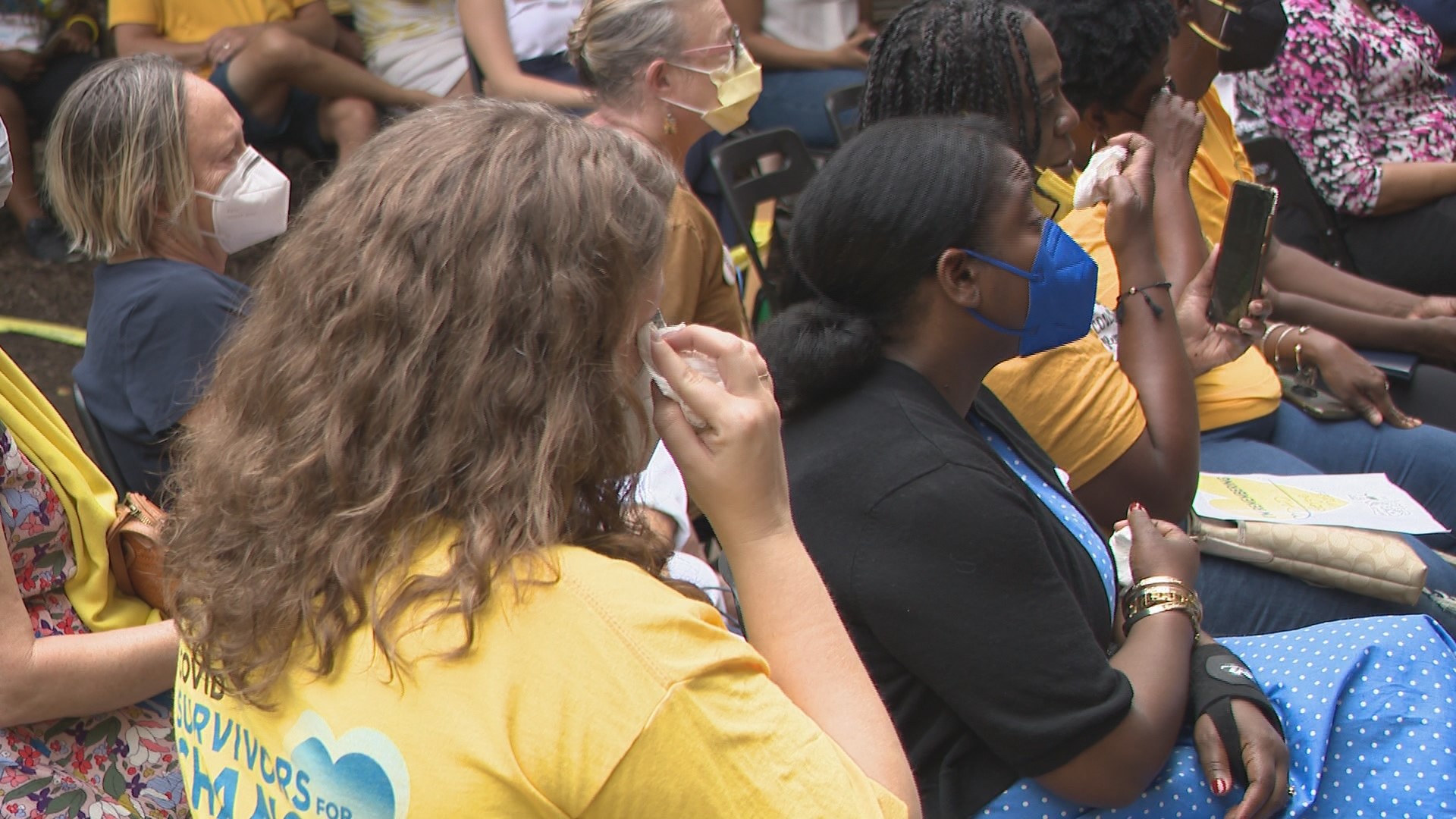ATLANTA — The small courtyard at St. Luke's Episcopal Church was full of memories of the past and hope for the future as people of all backgrounds gathered to reflect on the lasting impact of COVID-19 and the life-altering pandemic it caused.
"I really wanted to help be a voice for this whole community," Astrid Paris said. Paris' father died in November of 2020.
"It was actually in rehab where he caught COVID. And it happened pretty quickly after that, Paris said. "And not a lot of people really had room for COVID-positive patients. So he was transferred to a nursing facility where he died three days later."
Paris explained one of the biggest challenges was not being able to grieve with her family after her father's passing. She said limitations on gatherings and her brother's COVID diagnosis just three weeks after her father's death made it hard for her to find time to process everything as it was happening.
"I think initially my experience was coming to COVID survivors for change, for emotional support, and finding that, you know, everything that I was feeling was valid. My anger was valid," Paris said. "The special kind of grief that I was experiencing was indeed something unique to our experiences and through that kind of a healing journey that did help me to heal."
She wasn't the only person in attendance who lost a relative to the coronavirus. Adrienne McKibben-Holcolmb and her sister Cassandra McKibben-Dallas were there. They placed an image of their father along with those of others during the ceremony.
George McKibben died in April of 2020. It was a time when so much about the virus was still unknown. For his daughters, processing their grief more than two years later is still challenging.
"[We] couldn't be by his side. Just have to sit in the lobby and wait. It was difficult. So the emotional part of the loss is very heavy," Cassandra said.
Also in the crowd was Barabara McClean, a critical care specialist at Grady Memorial Hospital. McClean said she treated one of the first recognized cases in Georgia. She says her role quickly changed from trying to treat the virus to helping family members say goodbye to those who were dying from the illness.
"There are so many. And they were each so sorrowful. So it's hard to say any particular one because they were all so devastating."
McClean said it's important to remember the virus is still present.

